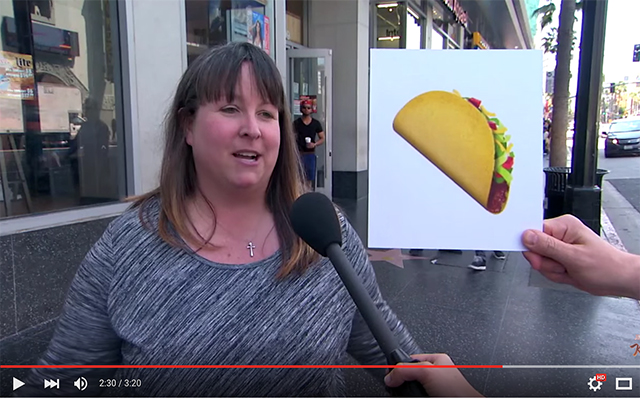Adviser offers advice on navigating world gone viral after Jimmy Kimmel interview
 I was recently interviewed for the Missouri State Teacher’s Association magazine “School and Community.” When asked about the digital age we live in and my thoughts on teaching our students how to handle themselves, I was quoted as saying this: “Freedom of speech doesn’t protect you from making a fool of yourself.”
I was recently interviewed for the Missouri State Teacher’s Association magazine “School and Community.” When asked about the digital age we live in and my thoughts on teaching our students how to handle themselves, I was quoted as saying this: “Freedom of speech doesn’t protect you from making a fool of yourself.”
Thanks to recent events in my life, I have never felt more sure about that statement. I also have never felt more sure about the true need to stress to our students the importance of their digital footprint, as well as how to handle themselves in a world gone viral.
Let me rewind a bit.
When I realized that I was going to be in Los Angeles to accept my JEA National Broadcast Adviser of the Year honor, I immediately decided to once again pursue my lifelong dream to be on the Price is Right. My dreams were crushed because I would be in LA when they were on a break from filming. So, I thought to myself, Jimmy Kimmel Live!
After jumping through the hoops to obtain my free priority seating ticket for Jimmy’s show, I found myself standing in line awaiting my front row Kimmel experience. However, before that could happen, I was approached to speak on camera for the show. Of course I jumped at the opportunity.
It didn’t take me 5 seconds to grasp what was happening. As one emoji after another was shown to me to get a “reaction” on camera, I knew they were trying to get me to say words that are most certainly NOT appropriate for me to say on national television.
As much as they egged me on, I stuck to my guns and played dumb. That worked to my advantage because Jimmy’s bit on emojis that are often taken as “dirty” didn’t just air on his show, it’s a viral sensation: YouTube, Twitter, Facebook, BuzzFeed, and even more.
I have heard from so many people, I have lost track. I have found that if I want to hear from people that haven’t bothered contacting me in years, then I need to be featured on BuzzFeed. My phone blows up each time it’s shared on a new platform.
The most common reaction people have to it is confusion. They are like, “Michelle, you know what those emojis also mean, right?” The second is, “I saw you on Jimmy Kimmel and Why were you holding back?”
Here and now, let me address these questions. Yes, I know what the emojis mean beyond their literal meaning, and I held back for all these reasons:
#1. My career.
#2. My daughter.
#3. My mother.
#4. My grandmother.
#5. I didn’t think JEA would like their National Broadcast Adviser of the Year to say such things via a network night show, social media, and more.
The key is, the minute I saw the eggplant emoji, I laughed and thought of the consequences of my words. Same for the peach and taco… and more!
I processed the consequences of my words quickly, but do our students? How can we help them think before they speak or act on a video that at any second could become viral? I know many educators keep trying to relate to students the importance of their digital footprint, but I seriously doubt we are doing enough when I hear story after story of ruined dreams and reputations.
Just do a Google Search for “fired over social media posts” and the results will astound you. While many are pushed off as laughable and a joke, we often forget that the person who lost their job is most likely not laughing now.
While I am unsure what the answers are, I do feel that beyond the core subjects and electives within our state curriculums, we must fit in Digital Citizenship and work with our students to understand the ramifications of their actions online.
It is true. “Freedom of speech doesn’t protect you from making a fool of yourself.”
You can quote me on that, and an eggplant is just an eggplant. Thank you, Jimmy Kimmel.





Pingback:SNO Sites Customers | The freedom of staying silent, the future of investigative reporting, and a live broadcast experiment like no other: This week’s Fresh Powder Report
Beautifully stated. The conversation never becomes redundant.